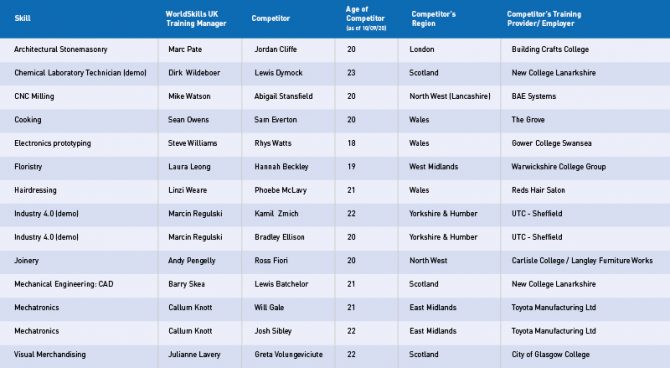Digital learning has shown its potential, and while issues of equity remain now is the time for colleges to make the transition permanent, writes Sally Dicketts
Colleges play a significant role in building communities and supporting their local economy, and the COVID-19 pandemic has brought this sharply into focus. Innovative practices were rapidly put in place to teach remotely during lockdown, and we saw colleges championing digital as a way of supporting learners.
As learners now return to college, the further education (FE) sector is helping the UK bounce back – upskilling, reskilling and providing pathways for those who have recently left school. Whether students are learning on campus, remotely, or with a blended approach, they are using digital systems and learning platforms, connecting and collaborating with their peers and tutors, accessing support for their wellbeing, and benefitting from a nurturing college community. Technology underpins every aspect of that experience.
Jisc’s learner digital experience insights survey 2020 gives crucial insights into where we are now and what students may need in future, highlighting how 19,137 learners in colleges and sixth forms experience and use technology to support their learning. These findings highlight the valuable work colleges have been doing. I’m pleased to note that 76 per cent of learners rate the quality of digital teaching and learning on their course as ‘good’, ‘excellent’ or ‘best imaginable’, and that 75 per cent rate the quality of their organisation’s digital provision similarly highly. This validates the investment colleges have been making in their digital environments.
We cannot continue to assume that all learners are confident with the new digital tools
However, there are some concerning results too, which expose issues of digital and data poverty, and raise questions over whether learners have adequate access to devices, wifi and other essential systems and services. Students seem to be relying on smartphones to access digital learning, with 82 per cent saying they use one for their studies. Meanwhile, 68 per cent use a laptop, 28 per cent use a desktop, and 25 per cent use a tablet. That leaves a significant number potentially using sub-optimal mobile phone resources and, more worryingly, 3 per cent of learners saying they don’t have access to any digital device. That’s a small percentage, but in real terms, it’s 574 individuals for whom learning online is a real challenge. I care deeply about the consequences of that.
The rapid move to remote learning we’ve seen through COVID-19 has highlighted the need for teaching staff to reconsider the way they integrate technology into their delivery, ensuring learners are offered interactive and engaging experiences, and opportunities to collaborate online. Contact with their tutors, both synchronously and asynchronously, is critical to keeping learners engaged and giving them a sense of belonging.
Yet the survey findings show that 33 per cent of learners never work online with other learners. This has to change; the college experience must reflect collaborative workplace practices and help students connect with the wider learning community. While preparing them for the realities of employment, this can also help mitigate feelings of isolation, build support networks, and maintain motivation to study.
A key theme emerging from this year’s survey was the need to support students to develop their digital skills. We cannot continue to assume that all learners are confident with the new digital tools and apps they are being asked to use. While 66 per cent of learners surveyed rated the quality of support they received from their college to develop their digital skills as ‘good’, ‘excellent’ or ‘best imaginable, only 51 per cent agreed they receive guidance about the digital skills they need for their course, and only 41 per cent agree that their organisation provides them with the chance to assess their digital skills. Student confidence in essential knowledge and behaviours, such as digital wellbeing and safety, was low with only 54 per cent agreeing they were informed about their health and wellbeing as a technology user.
We all now need to build on the learnings of lockdown to help students utilise their life skills, adaptability, creativity, teamwork and empathy. Now is the time for colleges to ensure digital underpins every aspect of their learners’ educational journey.
I intend to take full advantage of the expert advice and support provided by Jisc and hope colleges will do the same, working to ensure they are able to realise the potential and benefits that technology offers across all aspects of their delivery.
Collaboration across our community – bringing staff, learners and employers together – can help us all to survive and thrive in this uncertain world, where digital is no longer optional but a seamless part of every aspect of post-lockdown life.



 He added: “It is also clear that, as the impact of lockdown is felt across the wider economy and students digest the summer examinations debacle, more young people are looking for an education which prioritises the skills and aptitudes they will need in their future careers rather than simply ‘teaching to the test’.”
He added: “It is also clear that, as the impact of lockdown is felt across the wider economy and students digest the summer examinations debacle, more young people are looking for an education which prioritises the skills and aptitudes they will need in their future careers rather than simply ‘teaching to the test’.”


